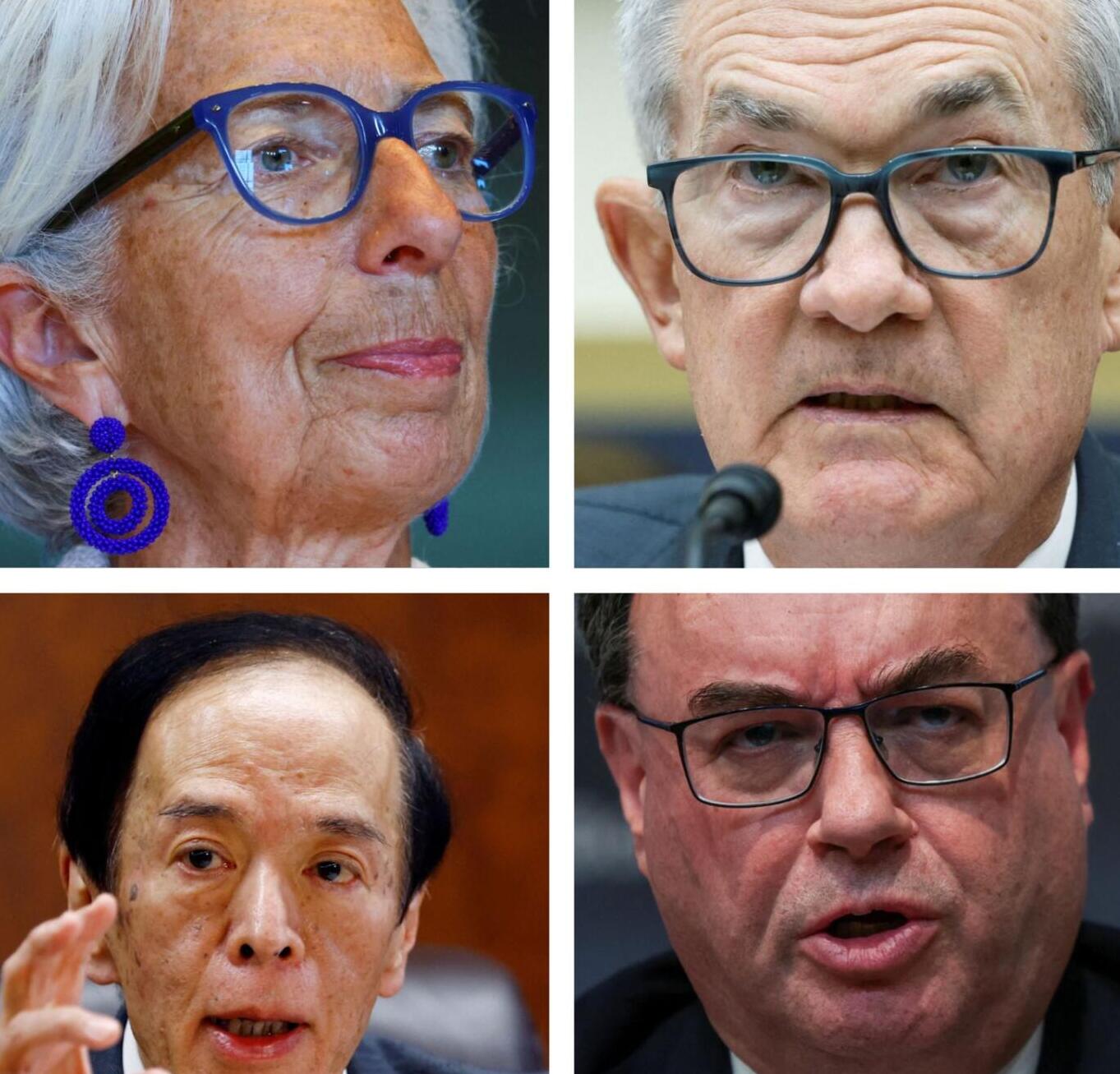Central Bank Leaders Emphasize Further Tightening Measures to Control Inflation
In a reaffirmation of their commitment to combat stubbornly high inflation, leaders of the world’s top central banks stated on Wednesday that they believe additional policy tightening is necessary. Despite this, they expressed confidence in their ability to achieve this without triggering recessions.
During an annual gathering of central bankers hosted by the European Central Bank (ECB) in Sintra, Portugal, US Federal Reserve Chairman Jerome Powell indicated that further interest rate hikes were not off the table. He did not rule out consecutive rate hikes at upcoming Federal Reserve meetings. Powell emphasized that current policy measures have not been restrictive enough for a sufficient duration, suggesting the need for additional tightening. The next rate-setting Federal Open Market Committee meeting is scheduled for July 25-26.
Powell specifically highlighted the importance of a softer labor market in the United States to alleviate inflationary pressures. While he acknowledged the possibility of a downturn, he stated that it was not the most likely scenario. He emphasized that the aim was to strike a balance between controlling inflation and avoiding economic contractions.
Meanwhile, European Central Bank President Christine Lagarde confirmed expectations of a rate hike in July, stating that it was “likely.” Lagarde acknowledged the potential for the euro zone economy to slip into a recession but emphasized that it was not the ECB’s primary expectation. She expressed the need for further progress in the fight against inflation, stating that there was insufficient evidence of underlying inflation, particularly in domestic prices, stabilizing and decreasing.
On the same panel, Bank of England Governor Andrew Bailey discussed the recent unexpected 50 basis point rise in interest rates. Bailey attributed the decision to a resilient economy and persistent inflation. He noted that the Bank of England did not currently forecast a recession, reflecting confidence in the economy’s resilience.
The statements made by central bank leaders underscore the ongoing efforts to address rising inflationary pressures. These leaders recognize the need for continued vigilance and proactive measures to ensure price stability and sustainable economic growth. Despite concerns about potential recessions, they remain optimistic about striking the right balance between inflation control and economic stability.
It is crucial for central banks to carefully monitor economic indicators, including labor market data, domestic prices, and overall economic performance, to inform their decision-making processes. By adopting a data-driven approach, these institutions can navigate the complexities of the current economic landscape and implement effective policies.
The global economy continues to face inflationary challenges driven by factors such as supply chain disruptions, increased commodity prices, and rising wages. Central banks play a vital role in managing these pressures and maintaining confidence in financial markets. The actions they take in the coming months will be closely watched by market participants and economists worldwide.
In conclusion, the leaders of the world’s top central banks reiterated their commitment to tightening monetary policies in order to address persistent inflation. While acknowledging the risks of potential recessions, they expressed confidence in their ability to achieve their inflation objectives without causing significant economic downturns. As the global economy grapples with inflationary pressures, central banks play a critical role in ensuring stability and sustainable growth. The decisions made by these institutions in the near future will shape the trajectory of the global economy and its prospects for recovery.





